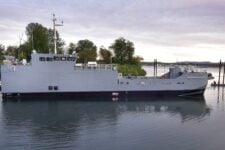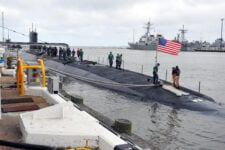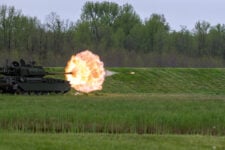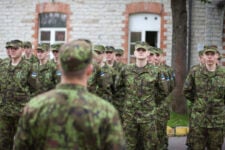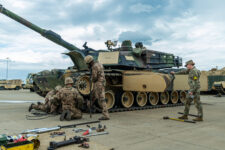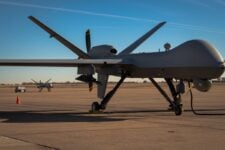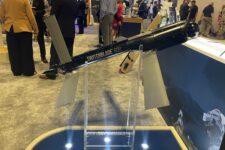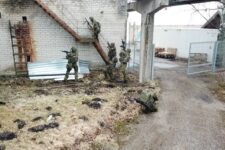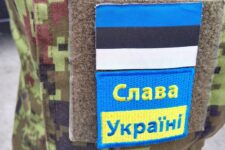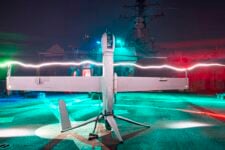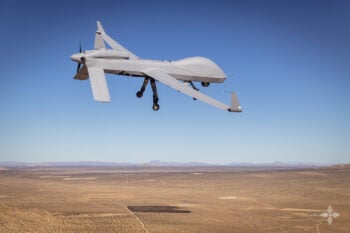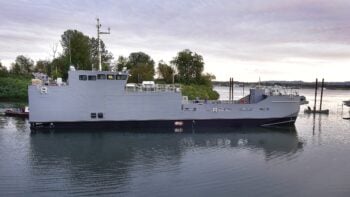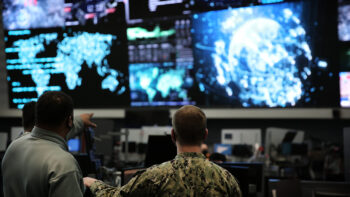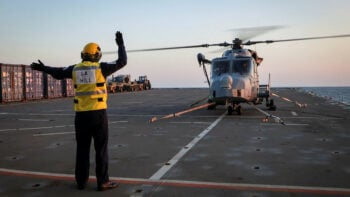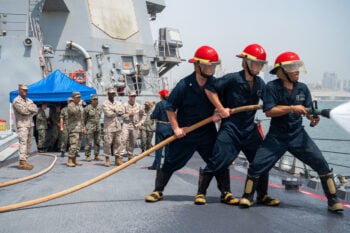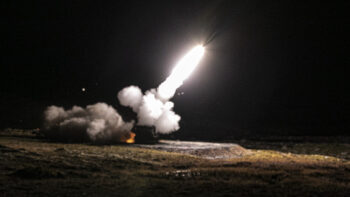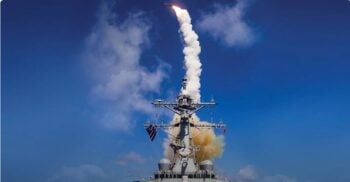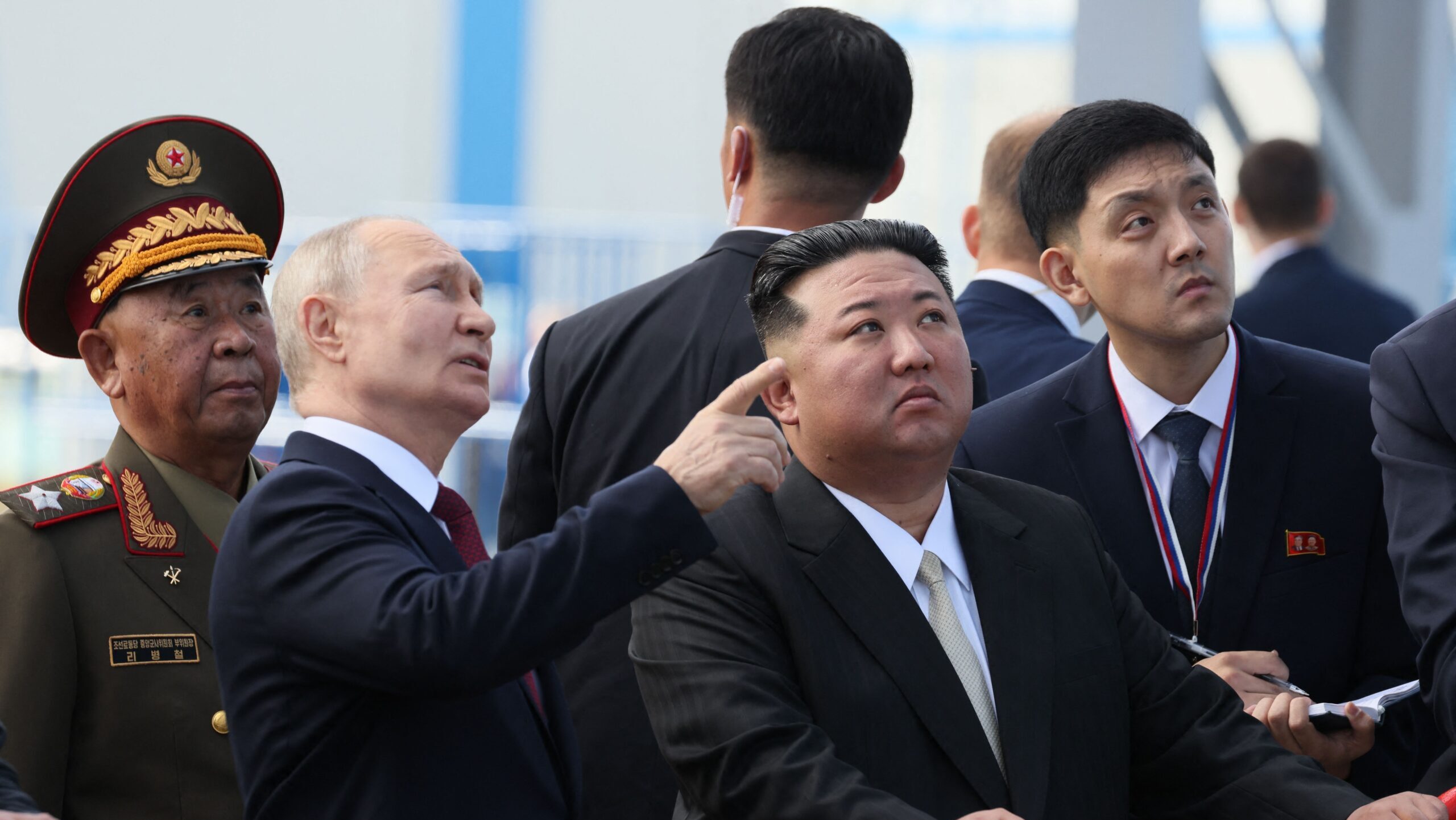
In this pool photo distributed by Sputnik agency, Russia’s President Vladimir Putin (centre L) and North Korea’s leader Kim Jong Un (centre R) visit the Vostochny Cosmodrome in Amur region on September 13, 2023. (Photo by MIKHAIL METZEL/POOL/AFP via Getty Images)
WASHINGTON — Following a meeting between Russian President Vladimir Putin and North Korean leader Kim Jong Un, a top Defense Intelligence Agency official said it “wouldn’t surprise us” if the two nations had spoken “in detail about weapons transfers.”
“It’s very concerning, no question about it,” DIA Deputy Director Suzanne White told the audience at the Potomac Officers Club Intel Summit on Thursday in response to a question about the Putin-Kim meeting from Breaking Defense. “We are watching, trying to glean as much as we can out of those interactions, out of those conversations.”
The White House weeks ago accused Russia of seeking weapons from Pyongyang for use in Ukraine, and recently National Security Advisor Jake Sullivan told reporters that “before the visit and after the visit… talks about the provision of weapons by North Korea to Russia to kill Ukrainians have been advancing and continue to advance.” Though both nations have denied arms talks, Putin publicly said during the meeting that Russia could aid North Korea with its satellite program. (At the United Nations, South Korea warned Moscow against helping its northern adversary with its nuclear program.)
No deals were publicly announced during the Russia-North Korea meeting, but afterwards, Kim ordered his government to take unspecified steps to strengthen its relationship with Russia to “a new high level at the practical stage.”
“Really, Russia is reaching a level of desperation, looking for additional suppliers out there” as sanctions take their toll, White said.
RELATED: Zero trust is breaking things at the DIA, and ‘that’s good’: CIO
She declined to say whether the military intelligence agency had seen evidence that any such weapons transfers had actually taken place, but told the audience, “We will continue to observe that and watch that, to see what comes of that.”
“Please, just know that’s something the IC [Intelligence Community], DIA is watching,” she said.
Prior to the meeting between Putin and Kim, DIA had taken a lead role in the IC in exposing what the US says is Russia’s extensive use of Iranian weaponry, namely suicide drones. Last month the agency updated an unclassified report on those transfers. Tehran has denied supplying the weaponry.
“The original unclassified report […] confirmed Russia’s use of various lethal Iranian UAVs against Ukraine,” the DIA said in late August. “These UAVs have become a critical part of Russia’s war in Ukraine and are being used to attack critical infrastructure. The update features additional findings and declassified images to disprove Iran’s continued claims that Russia is not using its UAVs in Ukraine.”
What Keeps You Up At Night? ‘Money.’
Elsewhere in her talk, White took the opportunity to stress the need for more funding at her agency. When asked by an audience member the age-old security question, “What keeps you up at night?” White immediately said, “Money.”
“We don’t have enough to do what we need to do,” she said, specifically saying that another $500 million in the budget would solve a lot of problems.
Earlier, White had said the “biggest challenge” for the agency was balancing “requirements coming our way from customers” versus the “resources we have available.”
“There is absolutely no question that DIA capabilities, as is the case with the entire IC, are in high demand right now,” she said. “And rightly so. Whether it’s the China threat, the continued Russia threat…”
White said funding has not increased in line with the demand for intelligence products, presenting a “significant challenge” and forcing the agency to triage. Every day leadership has to decide “what’s going to come first, what are we not going to do?”
“Is it only going to get worse? Probably,” she said.
Aloha: Fixes ongoing, then Army’s new watercraft prototype is Hawaii bound for testing
“Everything that we can knock off that list we will do in the archipelago…because that allows us to do the tests in the environment that the vessel will operate in ultimately,” said Maj. Gen. Jered Helwig.
